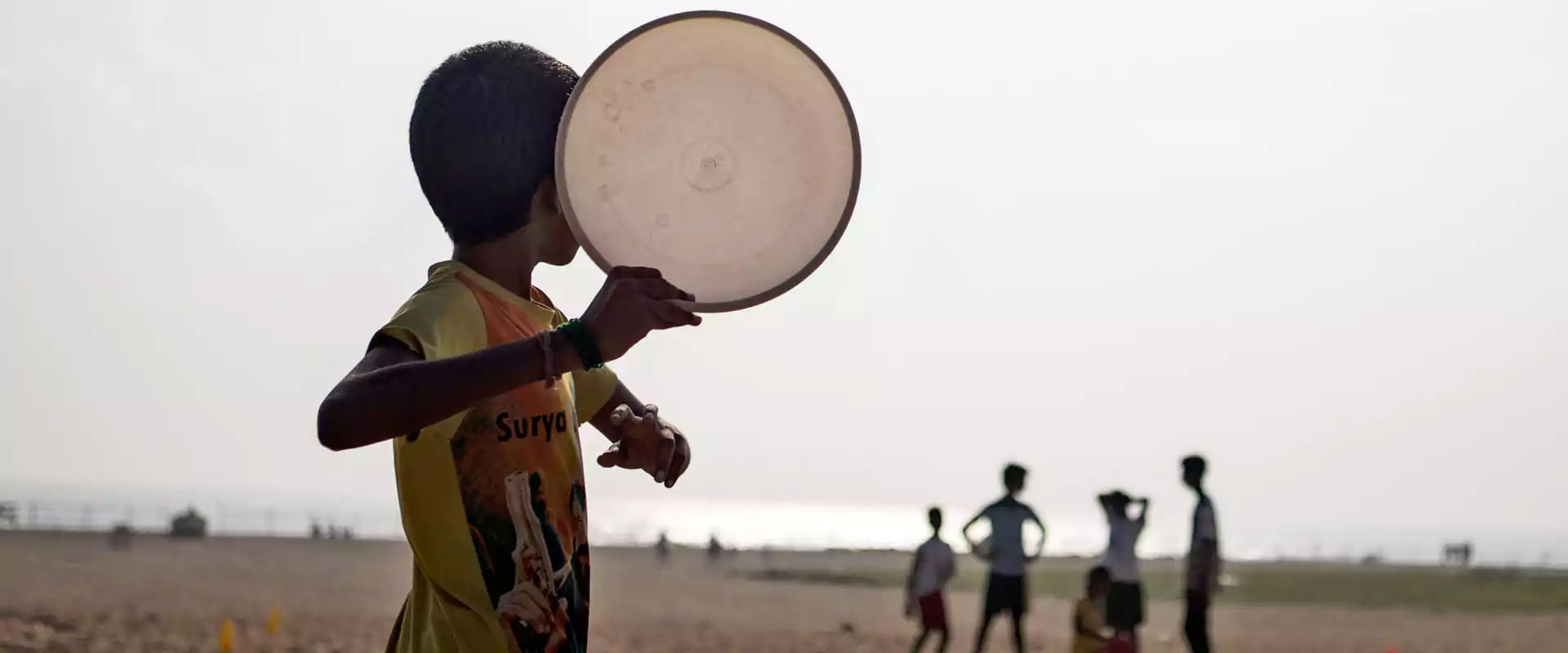In recent decades, we have witnessed rising inequalities and inequities which have created a detrimental impact on social cohesiveness, and progress in all sectors, especially in the fight against poverty.
According to the National Academy of Public Administration, social equity is “the fair, just and equitable management of all institutions serving the public directly or by contract; and the fair and equitable distribution of public services, and implementation of public policy; and the commitment to promote fairness, justice and equity in the formation of public policy.”
Unfortunately, developing countries around the world suffer from a lot of inequality in all sectors. Power dynamics in the political, economic, and social domains influence people’s access to and interactions with important institutions, frequently resulting in negative integration and social marginalisation.
Pudiyador’s Playquity: Empowerment using Ultimate Frisbee
Pudiyador (anew in Tamil) is an education-driven child and family organisation that caters to disadvantaged communities across India. They aim to equip children and their families with experiences and opportunities that will empower them and their communities to break the cycle of generational poverty.
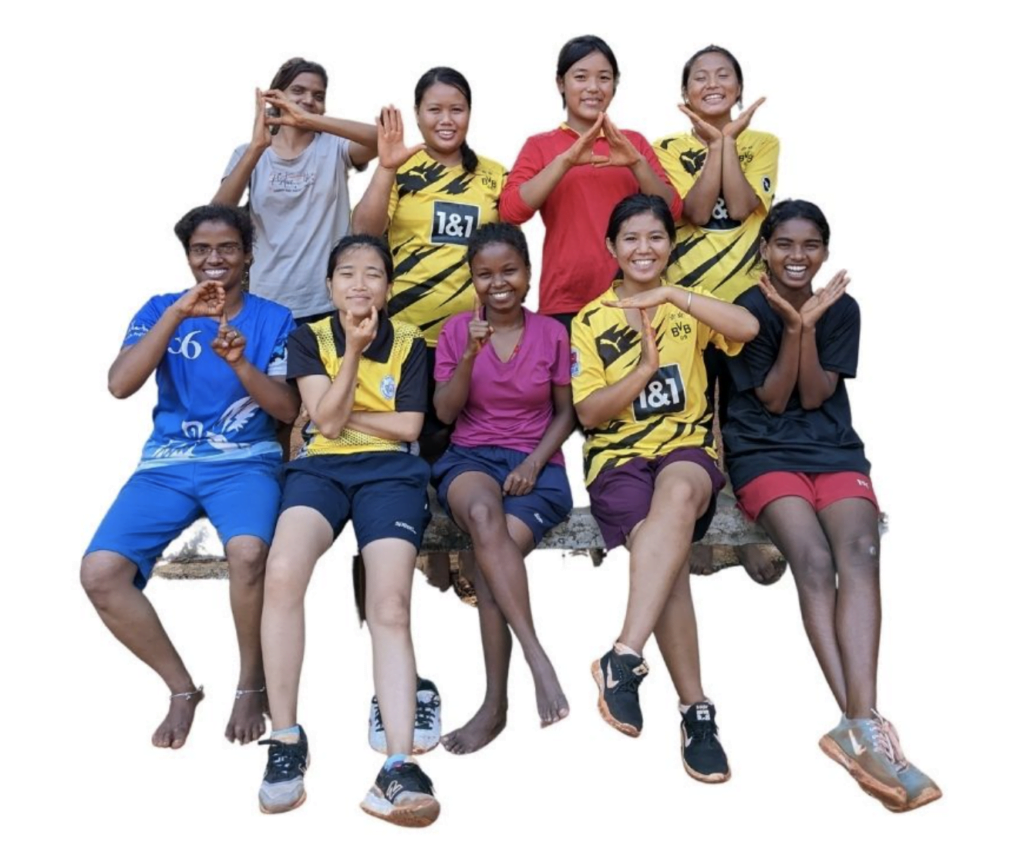
Taking equity as a guiding principle, Pudiyador caters to the underprivileged communities in rural areas of many states through their project called Playquity which incorporates a “Girls First,” paradigm to reverse gender norms to create parity via play.
Explaining the project Tushika, the Director of Playquity Operations said ‘Playquity works with rural women from different states aging from 11 to 27 approximately. Primarily the team starts by asking the young women to play to learn frisbee. Later the good pace and fulfilling journey encourages the women and children to ensure more participation.’
The women and children here do not just learn the sport, Frisbee is merely a tool that is used to help the girls understand equity, empowerment and leadership.
Girls who showcase interest in being trained and empowered are chosen to be Coaches-in-Training. Playquity provides a comprehensive ultimate frisbee training program for these girls that will enable them to develop not only athletic skills but also confidence, empathy, communication and interpersonal skills that are critical to their development.
The American India Foundation (AIF), a completely volunteer-driven foundation dedicated to improving the lives of India’s underprivileged, through their high-impact initiatives in education, livelihoods, and public health mainly focused on women, children and the youth, has supported Pudiyador’s Playquity project through placements of Fellows under the Banyan Impact Fellowship and together they foster leadership development by providing a strong foundation for the future generation of globally minded changemakers.
Fellows like Megan McKinley and Aashritha Murali have worked with Playquity to take their vision forward.
Globally, girls and women, especially those in underdeveloped nations, or even in rural areas are disproportionately affected by gender-biased beliefs and behaviours that sustain their ongoing marginalisation. Playquity, the brainchild of Swapnaa Jayaraman, prioritises teaching and empowering women, which will have a profoundly transformative effect on children and the community at large.
Why frisbee among all other sports?
When asked about the choice of sport to empower communities, the primary reason for frisbee being a mixed-gender sport was put forward. Tushika, the Director of Playquity Operations elaborates on the three primary factors unique to frisbee. Frisbee, is a no-referee sport where the player calls for all the actions taking place in the field and together as a team, the players practise democracy. One learns a lot about their power, opinion and where they stand.
Though there are possibilities of there being just women or just men in the game, all genders coming together in a mixed-gender sport is the key feature. Tushika further added that the game ensures absolute safety as there is no physical touch involved in the field.
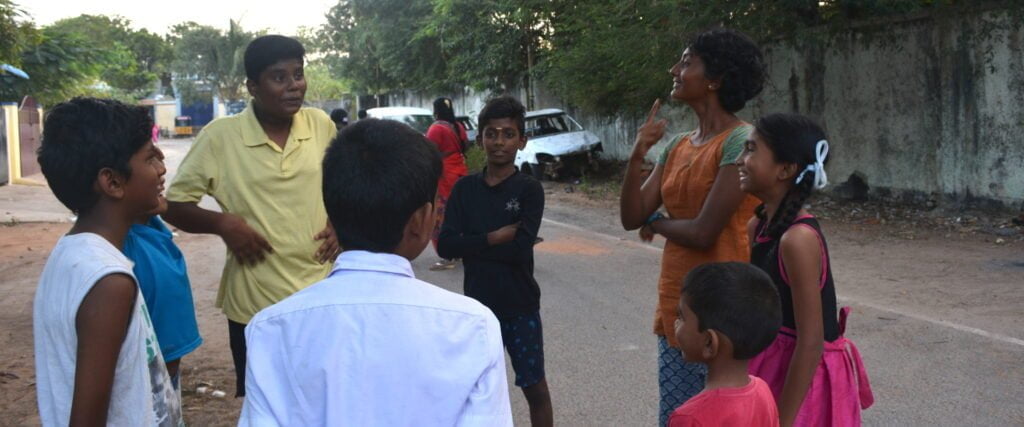
‘These women leaders, (CITs)reach out to more girls in their communities teaching them life skills. So Frisbee helps us to create an entertaining space, a safe space where we can start our fundamental form of providing all the girls with a different understanding of the society and their rights, which allows us to take it forward.’ Tushika added while talking about the empowerment of women and children through Frisbee.
The three phases of Pudiyador’s Playquity
Playquity uses a play-based model to usher in equity. There are three phases involved in this process as described by Jyoti, the Operative Associate.
The first is the incubator phase. ‘Training girls to be spirited athletes, the first phase where we focus on girls, we try to build their physical and mental strength, social skills, mostly frisbee skills. This phase is dependent on each area or village,’ says Jyoti.
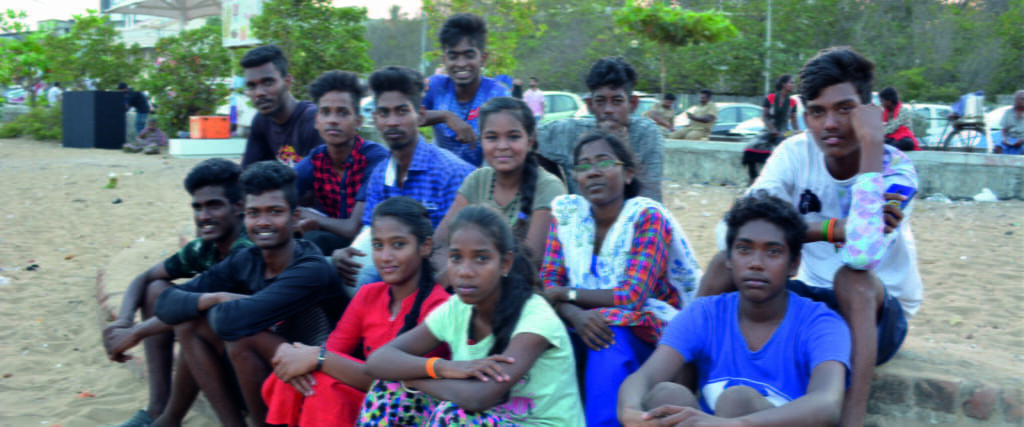
The second phase is the accelerator phase. ‘Connecting game skills to life skills, the second phase is focussed on instilling advanced skills and adding leadership to it. Again, it’s only girls, whereas the third phase includes all genders,’ Jyoti describes.
The third phase is known as the Integrator phase. ‘In this phase, girls are community leaders, where they are ready to teach boys using their good leadership qualities. They go and invite younger boys to join the team and start training them. Each leader will have their way of teaching and skills. And that is how we land up making mixed gender teams,’ Jyoti mentioned.
Making a change in society starts with taking a small step, Pudiyador with their programming, partners and trainers are people who dare to take steps to become the voice of many and to give voice to many.
‘We receive a lot of applications from NGOs. Primarily, we partner with NGOs when philosophies align and the NGO has already connected with the community. Then we reach out to the communities, hold community-wide meetings, and meet the families of the girls to explain about the Playquity model,’ said the team when asked about their partnerships and collaboration with volunteers and NGOs.
As per the team and the organisation, Playquity is so much more than Frisbee. Here the fun of this sport makes the children irrespective of their gender eager to learn the sport thereby defying societal stereotypes, and putting “girls first” to reinforce the need for equity in sports and all realms of life.
“It takes a village to raise a child”
Adhering to the proverb that conveys how important it is to provide a safe, healthy environment for a child to flourish, Pudiyador also intentionally involves the family and communities that each child is from.
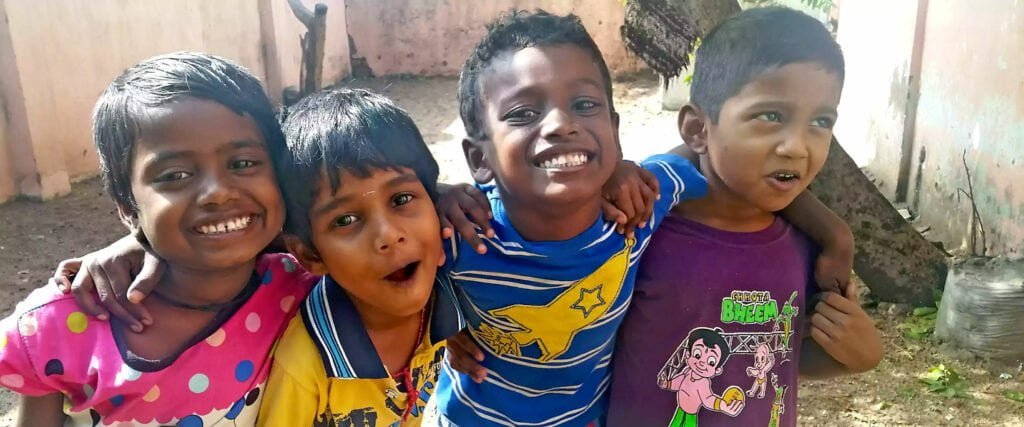
‘At Pudiyador, we believe learning is ideal when it is contextualised and includes family and the community. Building connections with the family and community through home visits is a part of any Pudiyador programming and Playquity is one among that. The ethos of our organisation recognises that community empowerment is an internal process (within the community) and cannot be accomplished solely by external entities like Pudiyador. We identify and empower women from the community who then become role models for more girls and the community at large thereby sustaining the program.’ Ashwini, the Director of Pudiyador said.
‘Eventually, the larger vision of Pudiyador is that children, women and marginalised communities act as engines of their empowerment and NGOs like us should not exist anywhere,’ she further added.
Keeping this vision as the major goal of the organisation, they strive to make the programs more sustainable and expand to more communities.
In a time where social media platforms are providing everything one needs, you are just one step away from volunteering to be a part of Pudiyador even remotely by reaching out to the team through WhatsApp, Instagram or the Website. They also encourage walk-in applications in their office space in Chennai.
The results the Pudiyador organisation, as a team, wants to achieve are much more than that. Some communities use Art, Theatre and Creative workshops to bring out the need to achieve equity and eradicate disparity, whereas Pudiyador chooses to use sports, “specifically Frisbee,” as a catalyst to showcase the need for bridging the gender gap. Since it is in sports where the gender disparities are at a maximum, they found the need to address this discrepancy.
‘For me, Playquity is a way to reach out to the young girls and say, “We are with you.” Back in our times, I did not get that, so I want to reach out and enable the girls out there to experience the outcomes of this initiative so that they can create an identity of their own,’ Tushika concluded.
